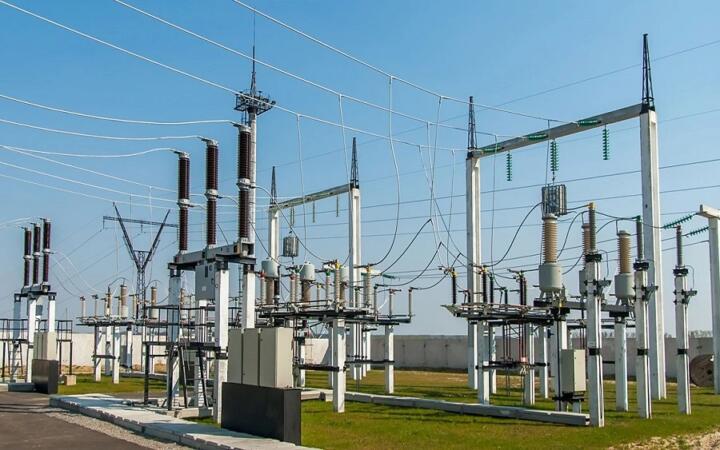Nigeria’s electricity distribution companies (DisCos) recorded a 4.9 percent decline in monthly revenue, sliding to N182.11 billion, as the power sector continues to grapple with operational inefficiencies, liquidity constraints, and customer dissatisfaction. This development underscores the persistent challenges in Nigeria’s electricity value chain, despite ongoing reforms aimed at boosting power supply and financial viability.
Industry data indicates that the revenue decline is linked to a combination of factors, including lower energy supply from the grid, technical and commercial losses, and issues around metering and tariff collection. The power sector still struggles with energy theft, estimated billing controversies, and weak infrastructure that limits efficient distribution to end-users. These constraints have made it difficult for DisCos to collect revenue commensurate with energy delivered.

Reports show that while the Nigerian Electricity Regulatory Commission (NERC) has approved service-reflective tariffs for DisCos to enhance cost recovery, revenue performance remains below expectations. The recent decline suggests that customers are either unable or unwilling to pay for electricity supplied, largely due to frequent outages and the rising cost of living. Inflationary pressures have further eroded household incomes, making it harder for many Nigerians to meet their electricity bill obligations.
Stakeholders in the sector point to inadequate power generation as another major challenge affecting DisCos’ revenue. With generation averaging between 3,500MW and 4,500MW against a national demand estimated at over 20,000MW, supply remains grossly insufficient. Consequently, DisCos are unable to distribute enough electricity to maximize earnings, and this has a ripple effect on the entire power value chain, including generation companies (GenCos) and gas suppliers.
Analysts have emphasized that without significant investment in metering infrastructure, technical upgrades, and improved service delivery, DisCos’ revenue performance will remain volatile. The sector’s liquidity crisis has been further exacerbated by the huge debts owed to GenCos and gas companies, while government intervention funds have not yielded the desired turnaround.
Efforts to improve the sector have included the introduction of a new tariff structure, the Meter Asset Provider (MAP) scheme, and performance monitoring of DisCos by NERC. However, progress has been slow, and many customers still rely on estimated billing, which has been a source of frequent disputes between DisCos and consumers. Industry experts argue that metering all electricity users will reduce energy theft, enhance transparency, and ultimately improve revenue collection.
The federal government has continued to engage stakeholders on reforms to stabilize the sector. Initiatives such as the Presidential Power Initiative (PPI) with Siemens aim to modernize transmission and distribution infrastructure, reduce technical losses, and ensure more reliable power supply. Nonetheless, implementation timelines remain a concern, and the financial health of DisCos continues to deteriorate.
The decline in DisCos’ revenue also raises concerns about the sustainability of investments in the power sector. Potential investors are wary of entering a market plagued by non-cost-reflective tariffs, huge losses, and regulatory uncertainties. This has led to calls for a holistic review of the sector’s operating framework, including improved governance, contract enforcement, and market liquidity reforms.
Despite the challenges, experts maintain that opportunities exist for growth if systemic bottlenecks are addressed. Expanding off-grid solutions and encouraging private-sector-led renewable energy projects could reduce pressure on the national grid and provide alternative revenue streams for DisCos. Furthermore, enhanced regulatory oversight and transparency will be critical to restoring confidence among investors and customers.
The Nigerian power sector remains a vital driver of economic development, but its persistent underperformance continues to constrain industrial growth, job creation, and overall productivity. As DisCos’ revenues dip, concerns mount over their ability to meet obligations to market participants, which could trigger a deeper financial crisis if not addressed promptly.
Going forward, sector stakeholders have urged the federal government and regulators to intensify reforms aimed at eliminating inefficiencies, boosting metering penetration, and incentivizing investments in distribution networks. With Nigeria’s population and energy demand on the rise, sustainable solutions must be prioritized to ensure the viability of the sector and the delivery of reliable electricity to homes and businesses.
If current reforms are implemented effectively and sector players commit to improved service delivery, the power sector could gradually overcome its financial and operational hurdles. However, without urgent intervention, the declining revenue trend may persist, undermining Nigeria’s broader economic aspirations and the welfare of millions of electricity consumers.
Support InfoStride News' Credible Journalism: Only credible journalism can guarantee a fair, accountable and transparent society, including democracy and government. It involves a lot of efforts and money. We need your support. Click here to Donate
